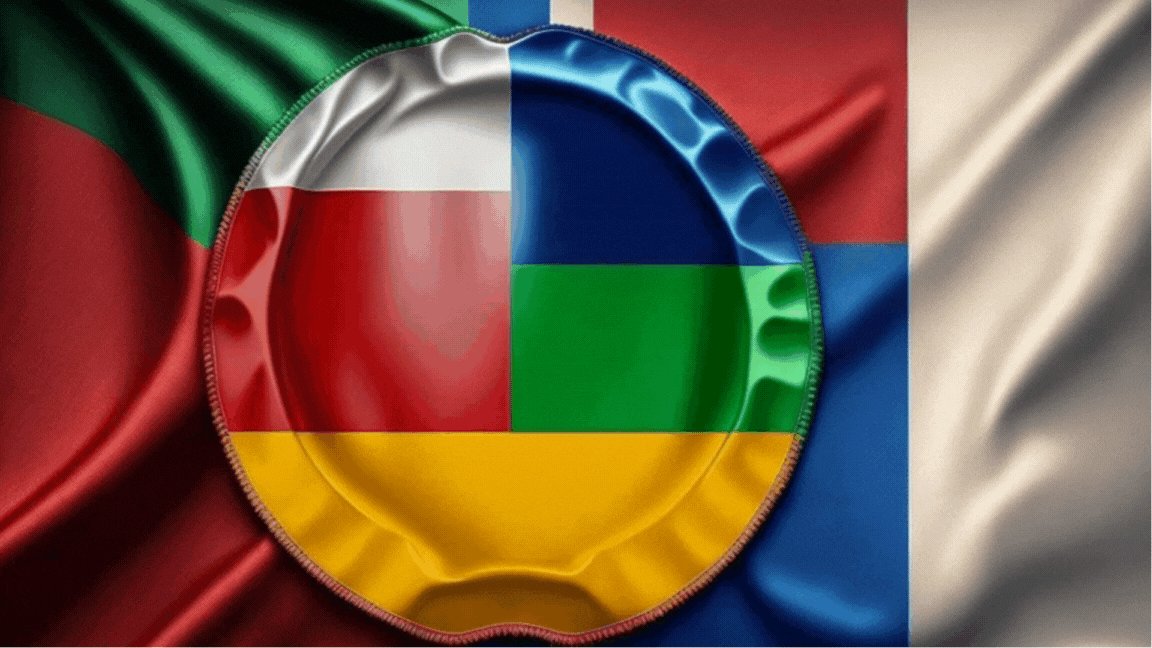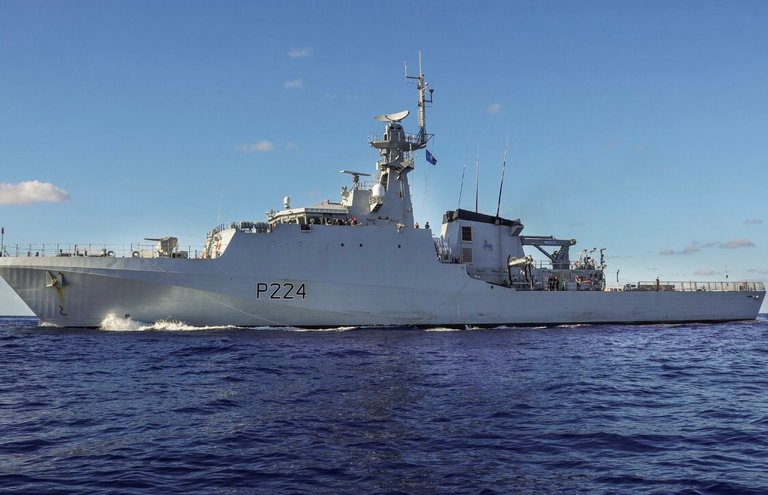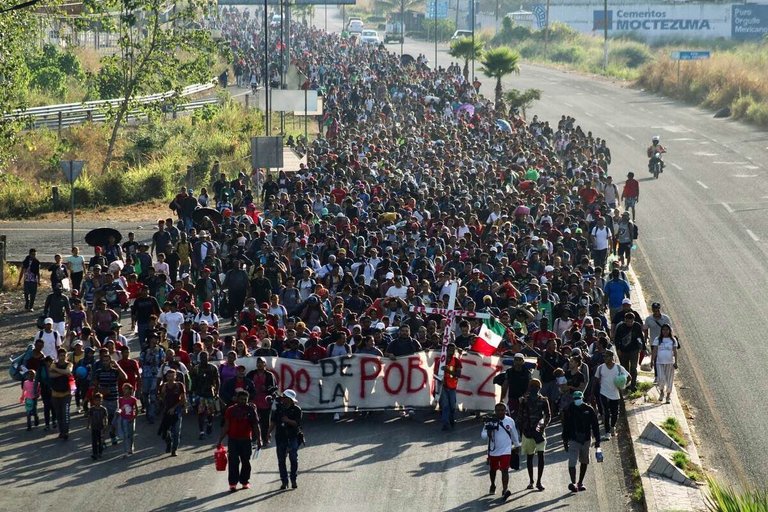The Latin American Report # 153

United Kingdom: an evil shadow over Essequibo
If they are not going to help in the resolution of a historic conflict that was born out of their arrogance and once immense power—I am talking about the one between Guyana and Venezuela over jurisdiction over the Essequibo—it would be best if the British refrained from intervening in it. As I warned, London's decision to send a naval vessel in support of the Guyanese has thrown fuel on a highly sensitive, flammable terrain, precisely when tensions between Georgetown and Caracas had calmed down somewhat after a cold but anyway productive meeting between the presidents of both countries in St. Vincent and the Grenadines. Although it is clear that Guyana had little intention of keeping the storm winds at bay, in the continuation of a highly questionable diplomatic performance (Venezuela activated the diplomatic channels agreed recently in Argyle to request—unsuccessfully—that Guyana dissuade the UK from sending its vessel to the region). This Thursday, the head of the Miraflores Palace reacted to the British action by ordering the execution of military maneuvers over the eastern Venezuelan Caribbean and the Atlantic coast, "as a response to the threat and provocation by the United Kingdom against the Peace and sovereignty of (Venezuela)".
 The HMS Trent, a Royal Navy Batch 2 River-class offshore patrol vessel (source of the image).
The HMS Trent, a Royal Navy Batch 2 River-class offshore patrol vessel (source of the image).London has responded by trying to make fools of Venezuelans and the international community in general, "arguing" that the arrival of the "HMS Trent" is due to "routine operations". Something that the Guyanese Executive contradicts by saying that these actions contribute to the "construction of a defensive capacity in Guyana", and that they would not stop the plans to protect the exclusive economic zone located in the disputed territory. A Downing Street spokesman said: "Venezuela's actions against Guyana are unjustified and should cease. The border between the two countries was agreed in 1899 through international arbitration and we continue to support the territorial integrity of Guyana, an important regional ally and Commonwealth partner". In a rather crude manner, this statement ignores the existence of an active conflict, recognized by the British Government itself in 1966 when, in the framework of Guyana's independence, it agreed with Venezuela a mechanism to resolve Caracas' claim against the referred arbitration award of 1899. Nearly 6,000 military personnel, some 30 aircraft, and 16 vessels were deployed in the first phase of the Venezuelan response to the presence of HMS Trent. "We believe in diplomacy, in dialogue, and peace, but no one is going to threaten Venezuela", Maduro also said.
So that's it: smoke
As we advanced in our report yesterday, the talks held between Andrés Manuel López Obrador and Antony Blinken to discuss the migration crisis ended with nothing new to contribute. I don't know how, in the face of such a chaotic scenario, the U.S. and Mexican governments waste time in anodyne meetings and then come out with this bland joint communiqué, in which there is nothing tangible or measurable. AMLO expressed his well-known position on the need for the United States to contribute to attacking the root causes of migration in all sending countries, without ideological discrimination, but what we read between the lines is that Biden's delegation if anything did take note.
 The migrants gathered in a new caravan that began last Sunday in Tapachula were exhausted on their fifth day of march towards the southwest border of the United States (source of the image).
The migrants gathered in a new caravan that began last Sunday in Tapachula were exhausted on their fifth day of march towards the southwest border of the United States (source of the image).Yet, I don't forget that in politics "what is real is what is not seen", and therefore something may be cooking behind the scenes. Because Mexico is somehow stepping up its policy against irregular migration. Yesterday we talked about the dismantling of a migrant camp in Tamaulipas located near the Rio Grande River, while it was reported that the caravan that left last Sunday from the southern state of Tapachula, on its way to the southwest border of the United States, suffered severe restrictions during its advance, as the Mexican Government "has intensified immigration control actions". Now, what would AMLO have demanded in exchange for playing a role that he has denounced (that one of acting like a persecutor of migrants)? Only stability in the operation of the different border crossings, which is Washington's sword of Damocles to pressure Mexico? A concrete change in U.S. policy towards Cuba? Time will tell.
A carcinogenic train runs through Latin America
Peruvian police yesterday broke up a women trafficking network by arresting some twenty members of a "branch" of the Tren de Aragua criminal organization, of Venezuelan origin that spread throughout much of South America, extorting and murdering. In the Andean nation, for example, it is considered the most dangerous gang, with tentacles in practically all regions of the country. The "operation led to the capture of 22 people, among them several Venezuelan citizens, and the rescue of 60 women victims of sexual exploitation, of Colombian, Venezuelan and Peruvian nationalities", said police authorities.
The Colombian and Venezuelan victims of these criminals were lured to Peru by false promises that they would work stable and safely in restaurants or nightclubs, but once there they were forced to prostitute themselves in pain of losing their lives, a threat that sadly was carried out on some of them, mercilessly executed by their captors (of those who resisted, the "luckiest" were isolated and tortured). The Public Prosecutor's Office revealed the discovery of "graves in the northern city of Chiclayo where women murdered for refusing to pay" that fake debt were supposedly deposited. Those who fall into these perverse networks are usually poor women, also with no tools to review in detail the supposed job offer that is advertised to them.
The quick regional roundup
Argentina's most important labor union has called for a general strike at the end of January against the deep and controversial reforms that Javier Milei is trying to advance, in an escalation of tensions. There will also be a demonstration at the Congress on that date, which implies a new battle with Security Minister Patricia Bullrich over her disputed anti-protest protocol. Yesterday, Thursday, a partial road blockade was reported on the outskirts of Buenos Aires. About the January mobilization, a social leader said that "it is a clear fight against the reinstallation of the conservative neoliberal model in its cruelest version".
Once again, the struggle for governments to strike a fair balance between the profitability of the exploitation of different natural resources and the potential negative environmental impact of this exploitation is evident. In Chile, the Council of Atacameño Peoples warned the tenants of the Moneda Palace "not to repeat the mistakes of the past and to submit any agreement to the highest international standards in terms of participation and indigenous consultation", about a new alliance between the state mining company Codelco and SQM to exploit lithium in the Salar de Atacama until 2060. The indigenous people are claiming that they learned about these plans—which involve "the extraction of water in a highly fragile and sensitive system"—from the press.
Puerto Rican Alexis Alicea Torres will serve a (too short) prison sentence of almost 50 years after pleading guilty to raping and impregnating his daughter when she was a teenager. Alicea, arrested last August, accepted all charges against him, which include incest, sexual assault, and child abuse. "This individual took advantage of his daughter's defenseless situation to abuse her, and not only impregnated her but also deprived her of her freedom by locking her and her baby under lock and key in a residence", police authorities said at the time, also accusing the mother of complicity.
And this is all for our report today. I have referenced the sources dynamically in the text, and remember you can learn how and where to follow the LATAM trail news by reading my work here. Have a nice day.

